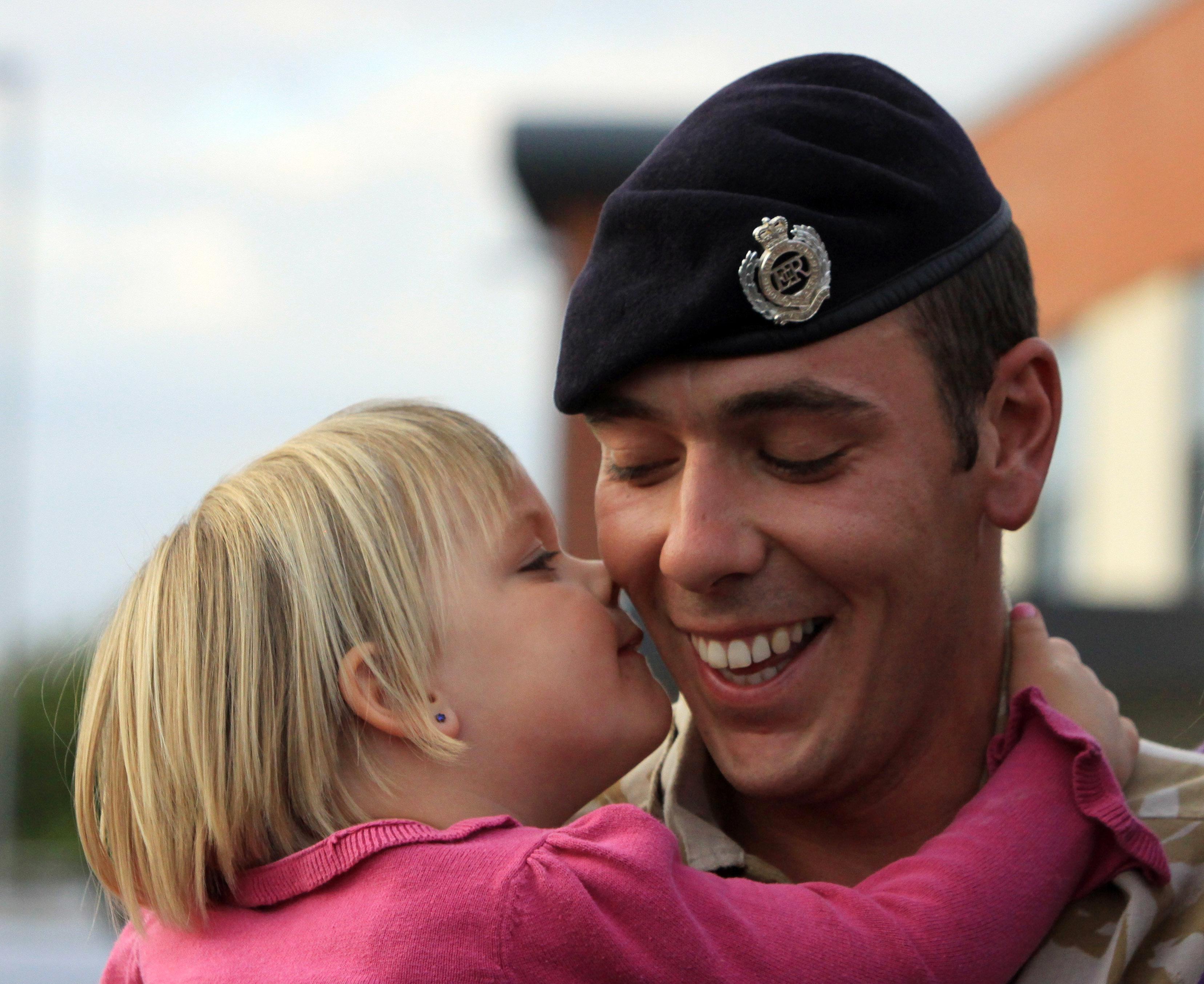Last night at the Tampa Bay Rays stadium, 9-year-old Alayna Adams, whose father has been deployed in Afghanistan for the past year, threw out the first pitch only to discover the man in the catcher’s mask was actually her father, Lt. Col. Will Adams. I’m still wiping my eyes at the sight of this long-legged sprite rushing in joy and shock to his arms. But I wish I’d never seen the video, and that the people in the stadium had not been allowed to be voyeurs. Though I know these reunions are staged for the best motives, a parent’s return should not come as a shock to the kids.
The children of our military personnel bear a heavy burden. They deal with the long absences of a beloved parent. They endure the gnawing fear that one day there will be a surprise—a stranger in uniform walking up the front steps to deliver awful news. A parent serving in the military is not the same as a parent on an extended business trip. Even the expected return of a military parent who may have been gone for a year can be overwhelming. It seems unwise to surprise these children as if springing a trip to Disneyland on them. This post explains that an unexpected return can have all sorts of negative ripple effects, from encouraging a child’s belief in the power of his or her own magical thinking, to causing pain for kids whose parents are not scheduled to come home (or who may never return), to undermining the sense that school is a stable, reliable place.
The surprise return has become such a staple that it’s even spawned two reality show series, Lifetime’s Coming Home and TLC’s Surprise Homecoming. As a Washington Post story critical of these reunions points out, both shows were done in cooperation with the military. ABC’s Good Morning America shows reunion clips (some from homecomings they’ve helped arrange) to give viewers a quick fix of warmed hearts and jerked tears. A site devoted to surprise returns offers a “best of” reel, presumably using a Richter scale-type measurement of amazement and weeping. The surprises can be elaborate—Mom emerging from a giant gift box at a school assembly, Dad whipping off his Darth Vader costume. But military homecomings are complicated emotional events, especially for children, and turning them into public spectacles in front of classmates or strangers can add to the stress.
I’ve only been able to watch a few of these videos. I’ve found myself turning away from the rawness of the emotion. I feel like an intruder seeing the children’s overwhelming relief, their uncontrollable sobbing. Our commander in chief has done such a good job as a father keeping his children out of the public eye and giving them the privacy they need. I wish this administration would encourage the military commanders to put out word that the children of returning service members deserve to reconnect in a safe, private space.
